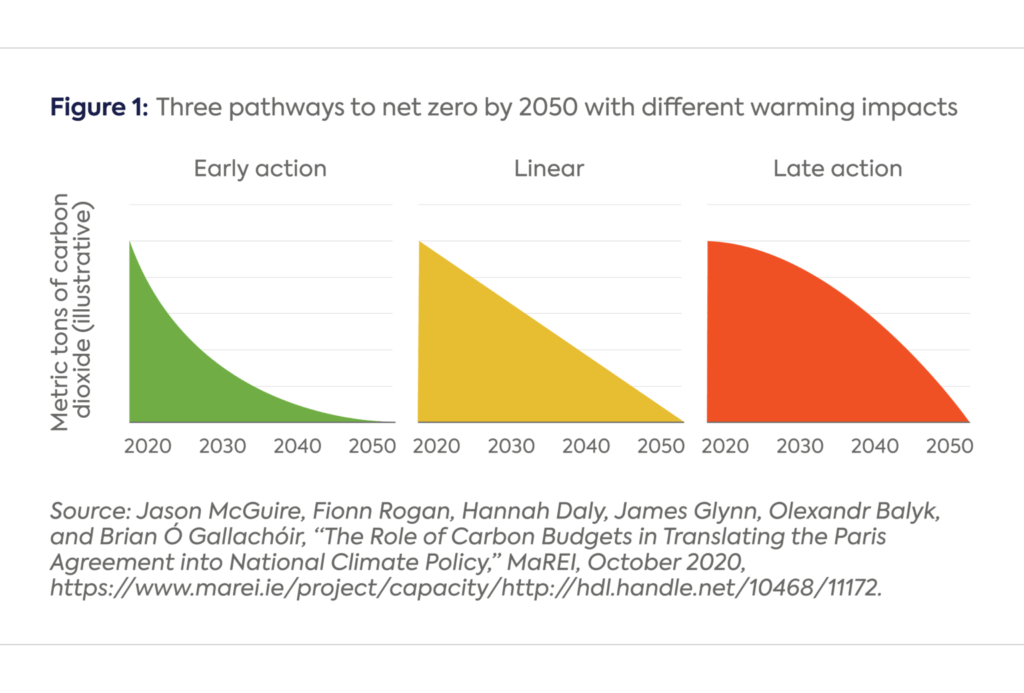As Climate Week NYC unfolds and COP28 approaches, let’s take a closer look at the Paris Agreement ratified during COP21 in 2015. The Agreement set a critical goal: limiting global warming to well below 2°C and striving for 1.5°C, as specified in Article 2. Article 4 underscores the significance of the net-zero target, emphasizing the urgency to reach global peaking of greenhouse gases (GHGs) as soon as possible to achieve a balance between emissions and removals.
While the net-zero target for emissions by a certain date is crucial, the pathway to achieving it is equally important. The experts emphasize that different emissions trajectories leading to net-zero by 2050 can have vastly varying impacts on global warming. Even if the net-zero target is met by 2050, delaying significant emissions reductions can result in almost double the temperature rise compared to early, proactive actions. This insight underscores the critical role of not only achieving net-zero by 2050 but also the urgency of the process and milestones leading to it.
Leveraging science-based pathways (SBTs) derived from the Intergovernmental Panel on Climate Change (IPCC) data, the experts illustrate the emissions reductions necessary to limit global warming to below 2°C and optimally, 1.5°C above pre-industrial levels. These SBTs provide a concrete and data-driven foundation for action, enabling countries and entities to calibrate their efforts and strategies effectively to meet the climate goals set forth in the Paris Agreement.
In their insightful analysis, experts Áine Greene and James Glynn from the Centre on Global Energy Policy shed light on a vital but often overlooked aspect of climate action—the net-zero pathway. The role of the United States, a significant contributor to global emissions, is a pivotal aspect highlighted by the experts. Urging the US to lead in achieving net-zero by investing in zero-carbon energy and removing barriers hindering progress, the experts emphasize the urgency to accelerate emissions reduction, particularly by 2030. This aspect amplifies the call for ambitious milestones and early actions, crucial to minimizing the catastrophic effects of climate change.
As the world braces for COP28 and the first Global Stock Take (GST) under the Paris Agreement, the urgency for action is acutely apparent. The analysis stresses the rapidly diminishing window of opportunity to secure a sustainable future for all. The severity and frequency of climate-induced disasters highlight the pressing need for an immediate course correction. The evidence presented compels the world, with the US at the forefront, to accelerate efforts, cut emissions, and align the trajectory of the energy transition.
The analysis from these experts underscores a critical paradigm shift. While achieving net-zero by 2050 is a pivotal goal, the path to achieving it is equally significant. Every fraction of a degree matters, and timely, ambitious actions are essential to mitigate the profound impacts of climate change. The clarion call is not only for a net-zero destination but for a robust and conscientious pathway that can effectively combat the looming climate crisis.
